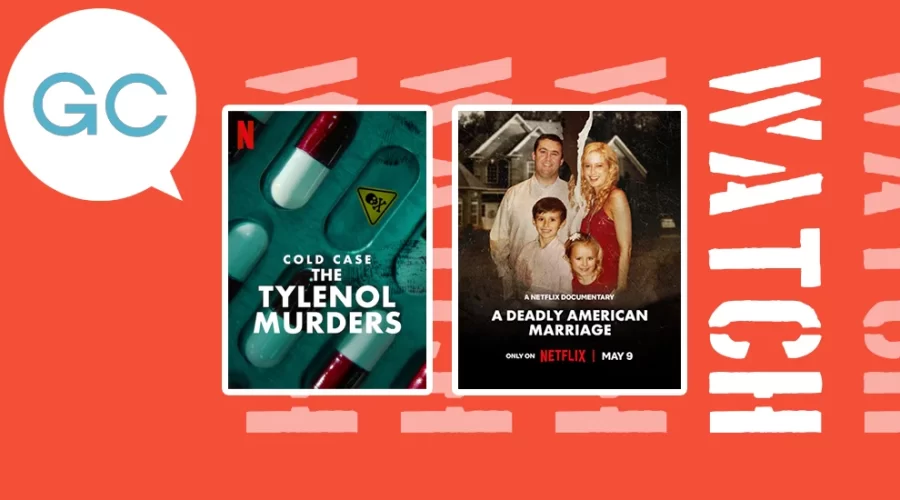When it comes to true crime stories on Netflix, recent additions of Cold Case: The Tylenol Murders and A Deadly American Marriage both stood out to me recently, because they did something that few documentaries actually manage – which is talk to accused criminals.
In the case of the Tylenol Murders story, the filmmakers actually got to sit down with James Lewis, a well-known suspect in a string of high-profile poisonings of Chicago-area residents with cyanide-laced painkillers, before he passed away.
Lewis is a terrible person. He likely killed a friend of his over money. He committed fraud and identity theft. He tried to use the Tylenol case to extort Johnson & Johnson (the makers of Tylenol) and pin it on a colleague of his wife’s whom he didn’t like.
He was also accused of rape, kidnapping, and torture, though that case never went to trial.
Lewis is horrifying to watch. He has zero remorse, in spite of having led a twisted life. But as the documentary also shows us, no one was able to prove that Lewis was the one who tampered with Tylenol bottles to kill random people.
In fact, the documentary makes a compelling case as to how Johnson & Johnson may have covered up potential negligence at their manufacturing plants. And how the Reagan Administration may have turned a blind eye to this situation.
This is good documentary filmmaking, because it allows itself to be complex. The true crime genre often shies away from complexity in favor of bold proclamations and voyeurism.
Here we get a real mystery. And we get a villain, Lewis, who frankly sucks, but who is not so easily scapegoated.
Not even a late interview with a fellow inmate, who categorically states that Lewis boasted that he did poison the Tylenol capsules and cleanly got away with it, amounts to a break in the case.
You want it to, because you want the trauma to be over for the victims’ families. But it’s not enough. Lewis is smiling away at the camera. After filming wraps up, he gets to die a free man.
A Deadly American Marriage is fascinating for similar reasons. The antiheroine of this detailed and compassionate documentary, a beautiful woman named Molly Martens, probably murdered her husband in cold blood, and got her father to help her cover it up.
The victim, Jason Corbett, left behind two biological children who both stated that Martens had coached and manipulated them into initially telling officials that their dad had been horribly abusive to their stepmom. This was essential to Martens’ claim of self-defense.
After years of legal drama, Martens and her father, a former FBI agent, walked free. Many questions remain. The pain remains too, as Corbett’s family still grapples with what happened. The interviews with Corbett’s children are gut-wrenching.
In today’s America, we are having many conversations about due process – and who it should and shouldn’t apply to. Both of these documentaries make it clear that the law is cold and impartial, and families of victims often don’t get justice, or closure, or even a sense of peace.
And so it’s easy to become furious with the justice system. It’s easy to want to tear it all down.
Both James Lewis and Molly Martens appear to be highly skilled in the art of manipulation. As the law makes clear, you can’t lock someone up based on how unlikable they are.
And no, this isn’t fair.
In fact, the often problematic true crime genre is often at its best when it explores the tension between what is fair and what is legal.
It’s very hard to get up close and personal with the limitations of the criminal investigations and the criminal justice system while also making good television, but The Tylenol Murders and A Deadly American Marriage have managed this
“Life’s not fair” is the catchphrase of exhausted parents everywhere (I’ve been known to deploy it myself, when I am at my wits’ end). But for adults, it can still be hard to comprehend that criminal justice is not particularly fair either. In fact, it was never meant to be – it wasn’t designed that way.
Criminal proceedings are defendant-centered for a reason, and that reason has to do with upholding the law, and, should a case go to trial, ensuring the state meets its burden of proof.
Throw that away, tear it down, and we are left with repression and chaos. And again, none of this is fair.
It’s very hard to get up close and personal with the limitations of the criminal investigations and the criminal justice system while also making good television, but The Tylenol Murders and A Deadly American Marriage have managed this.
Getting Lewis and Martens to talk was the key in both cases. They are the mysteries at the heart of two narratives that can never reach a satisfying ending. Their answers to questions posed by the directors only raise more questions.
This is deeply frustrating and disturbing.
It’s also infinitely watchable.

